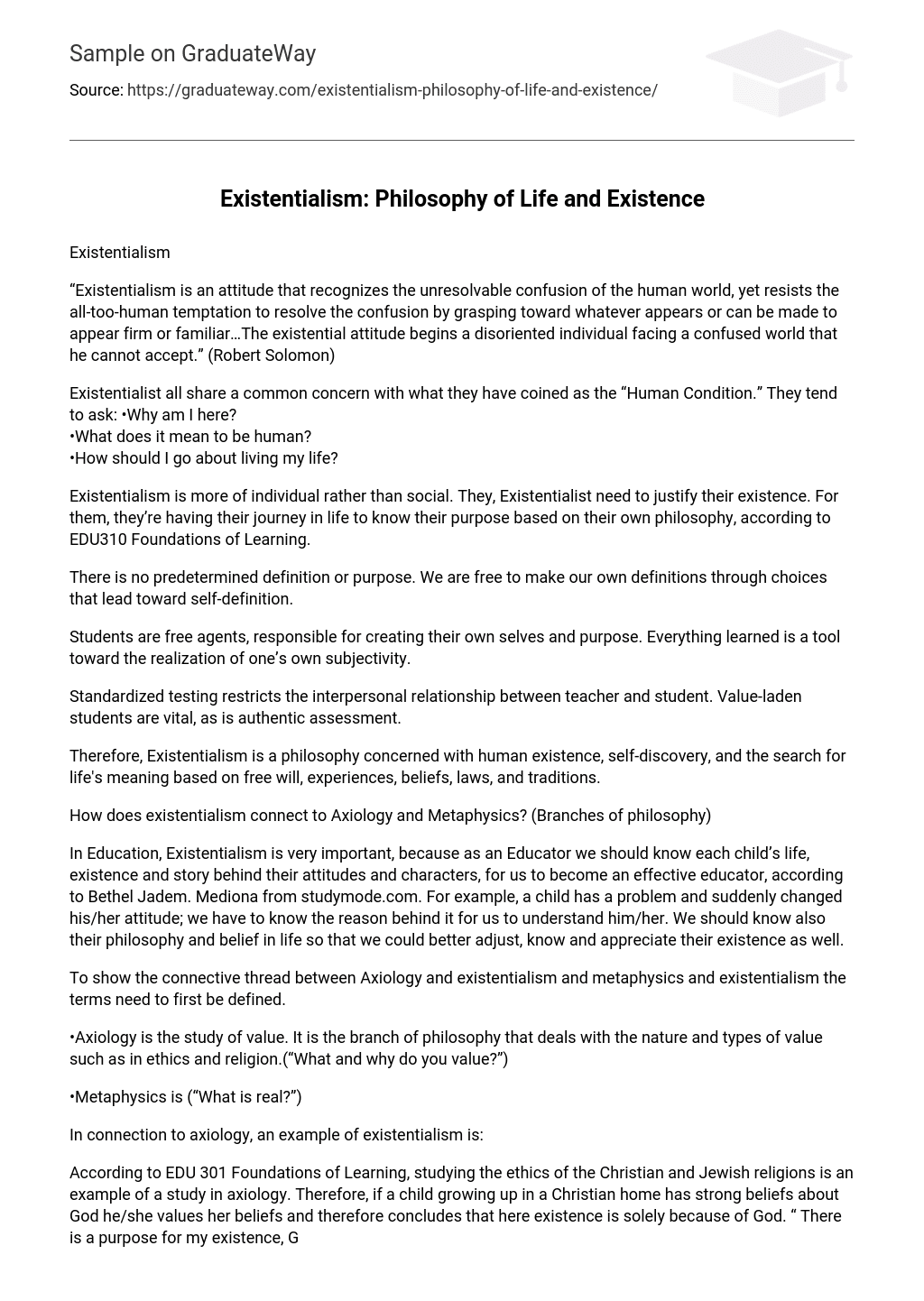Existentialism
“Existentialism is an attitude that recognizes the unresolvable confusion of the human world, yet resists the all-too-human temptation to resolve the confusion by grasping toward whatever appears or can be made to appear firm or familiar…The existential attitude begins a disoriented individual facing a confused world that he cannot accept.” (Robert Solomon)
Existentialist all share a common concern with what they have coined as the “Human Condition.” They tend to ask: •Why am I here?
•What does it mean to be human?
•How should I go about living my life?
Existentialism is more of individual rather than social. They, Existentialist need to justify their existence. For them, they’re having their journey in life to know their purpose based on their own philosophy, according to EDU310 Foundations of Learning.
There is no predetermined definition or purpose. We are free to make our own definitions through choices that lead toward self-definition.
Students are free agents, responsible for creating their own selves and purpose. Everything learned is a tool toward the realization of one’s own subjectivity.
Standardized testing restricts the interpersonal relationship between teacher and student. Value-laden students are vital, as is authentic assessment.
Therefore, Existentialism is a philosophy concerned with human existence, self-discovery, and the search for life’s meaning based on free will, experiences, beliefs, laws, and traditions.
How does existentialism connect to Axiology and Metaphysics? (Branches of philosophy)
In Education, Existentialism is very important, because as an Educator we should know each child’s life, existence and story behind their attitudes and characters, for us to become an effective educator, according to Bethel Jadem. Mediona from studymode.com. For example, a child has a problem and suddenly changed his/her attitude; we have to know the reason behind it for us to understand him/her. We should know also their philosophy and belief in life so that we could better adjust, know and appreciate their existence as well.
To show the connective thread between Axiology and existentialism and metaphysics and existentialism the terms need to first be defined.
•Axiology is the study of value. It is the branch of philosophy that deals with the nature and types of value such as in ethics and religion.(“What and why do you value?”)
•Metaphysics is (“What is real?”)
In connection to axiology, an example of existentialism is:
According to EDU 301 Foundations of Learning, studying the ethics of the Christian and Jewish religions is an example of a study in axiology. Therefore, if a child growing up in a Christian home has strong beliefs about God he/she values her beliefs and therefore concludes that here existence is solely because of God. “ There is a purpose for my existence, God will show me the way.”
In connection to metaphysics, an example of existentialism is:
Since “this” exists, that cannot exist.
“John was walking (this) on water (that).”
There is only knowledge of how, beyond what is given, so inferred to make the situation valid with natural cause.
As a metaphysical example, if he could walk on water, maybe he had water in his shoes.
There is also questions that go beyond what we know.Such as “is there a “first” cause?” Or is time “infinite”?
Since we ourselves can have no observation of such truth, only inference based on given present events, it becomes Metaphysical.





